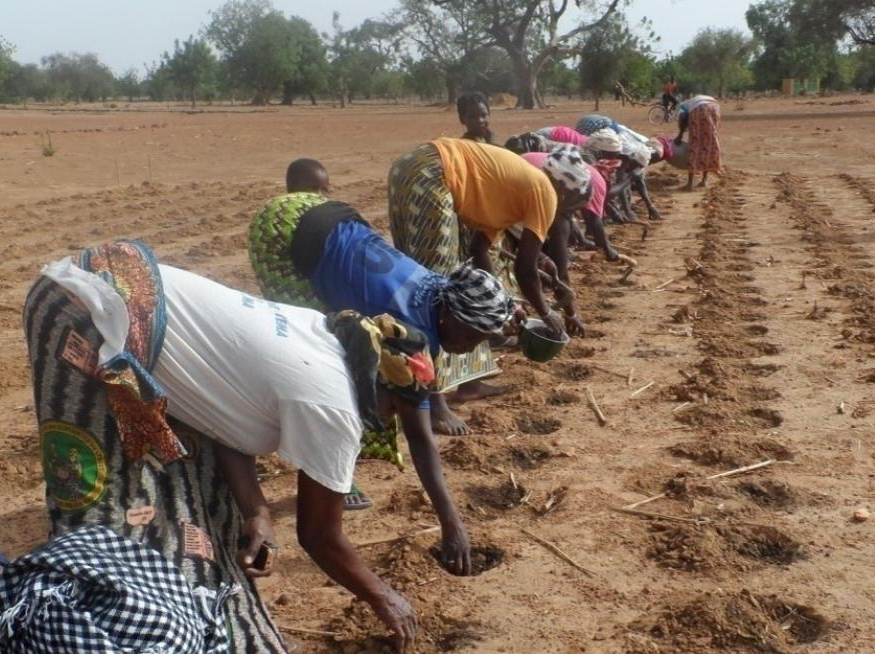COVID-19 Recovery Is a Chance to Make the Africa Food and Farming System More Resilient
By: Peter Gubbels, Nathanial Matthews, and Deon Nel
This article was originally published on October 23, 2020 on AgriLinks.

The pandemic has acted as a giant magnifying lens. It has shed light on inequality, the vulnerability of people’s livelihoods, and the fragilities of a hyperconnected global economic system.
Optimists say the pandemic is focusing policy minds on the need for more decisive, collective action on many resilience issues, including food and agriculture. As governments invest enormous resources to recover from COVID-19, many civil society groups are insisting on changing the system for the better. Optimists are saying: “build back better”.
Pessimists respond that the pandemic is only a moment that sheds light on well-known flaws and injustices before going back “to business as usual.” Once economies stabilize, the overall global system will continue unaltered. Various interest groups, who helped create the status quo before the pandemic, are still powerful players.
This tension between COVID-19 optimism and pessimism is currently playing out in dialogues regarding the farming and food system of sub-Saharan Africa.
Even before the COVID-19 crisis, the African food system was in crisis. In 2018, more than 250 million people in sub-Saharan Africa experienced severe food insecurity, most of them in rural areas. More than 30 percent of children are stunted partly due to poverty and poor diets.
The socio-economic benefits of investing in small-scale farm families, who often constitute more than 60 percent of the population, are obvious. Many governments in sub-Saharan Africa, however, favor agri-business, larger-scale commercial farms and the promotion of cash crops. The prevailing thinking is that “modernizing” agriculture requires mechanization, irrigation, increased use of chemical fertilizers, pesticides and herbicides, and the use of hybrid seeds. The focus is primarily on increased yields and profits.
The COVID-19 pandemic highlights that African countries have become highly dependent on large international food industries and the global imported food market. Last year, according to the African Development Bank, approximately $35 billion worth of agricultural products were imported into Africa. This expected to rise to $110 billion by 2025.
Importing such massive amounts of food weakens the resilience of African economies. It decimates the livelihoods of small scale farmers. It exports rural jobs away from Africa. The aggressive expansion of imported processed foods also negatively affects human health. They are proven to contribute to growing levels of obesity and diabetes in West Africa.
Imagine what African governments could do to strengthen their farming and food system if they implemented policies and programs that re-directed resources spent on importing cheap, often highly processed, food to the support of their own small scale farmers, and the localized production, processing, and marketing of grains, fruits and vegetables?
Post COVID-19 investments should promote a farming and food system that is not only productive, but also sustainable, resilient, nutrition-sensitive, and not dependent on expensive external inputs. Nowhere is this more important than in the Sahel region of West Africa, where the farming and food system has long been in deep crisis. Nearly 30 million people are struggling to produce enough food in the wake of climate change and land degradation.
In the context of Africa, one of the best ways to bolster a person’s health and resistance to diseases such as COVID-19 is through nutritious diets. Recognizing this, Groundswell International and the Global Resilience Partnership are sounding a clarion call for governments to support actions to improve food and nutrition security through the promotion of “agroecology”. This approach to agriculture enables small scale farmers to develop a farming system that is not only productive but also climate-resilient, sustainable, and nutrition-sensitive. The proven innovations include better integration of crops and livestock, conservation agriculture, using woody perennials in fields and landscapes to ecologically increase the productivity of more diverse food items. The underlying principle is to foster more integrated and equitable farming systems that use species diversity as a source of resilience and diversified diets while reducing the use of harmful chemicals.
One example is Groundswell’s work in Burkina Faso, which was supported by the Global Resilience Partnership (GRP). Our local network partners are working with farmers’ movements to promote agroforestry, mixed cropping, rainwater harvesting, and composting. They are obtaining incredible results despite the water scarcity near the encroaching Sahara desert. With these practices, they have reclaimed abandoned land for farming and obtained up to 130% yield increases of millet and sorghum, while regreening the landscape and adapting to climate change. In agroecological systems like these, the use of diverse and native species bridges wild and cultivated areas, helping to manage pests while also providing vital pollinators with continuous habitat.
These practical examples, supported by research evidence, are the building blocks that provide starting points for a new political discourse about agriculture. With direct effects on diets, pollution, climate change, and disaster risk reduction, transforming agriculture must become central in fighting the COVID-19 pandemic in Africa.
Groundswell, GRP and their partners and allies seek to persuade many others to become COVID-19 recovery optimists.
